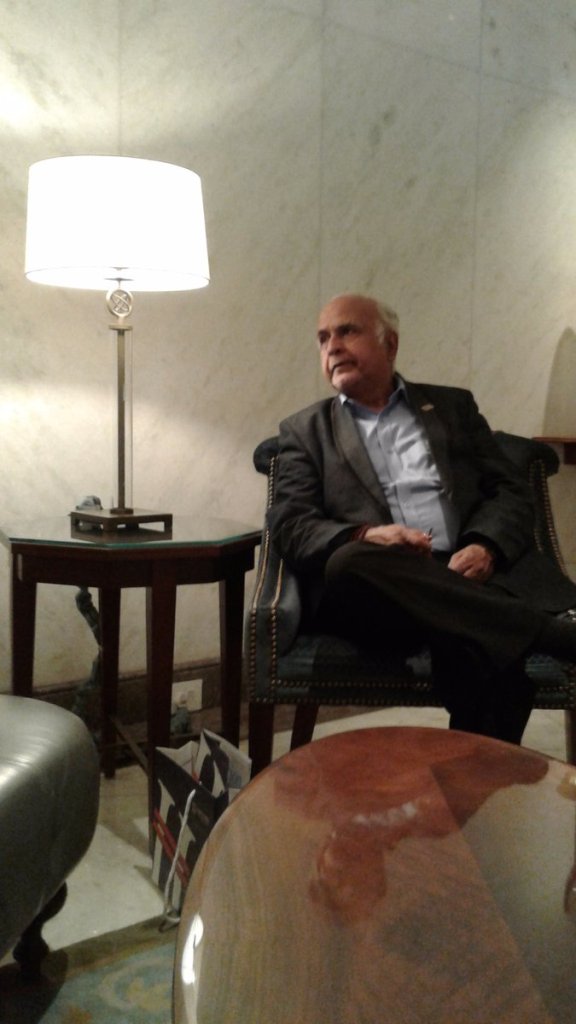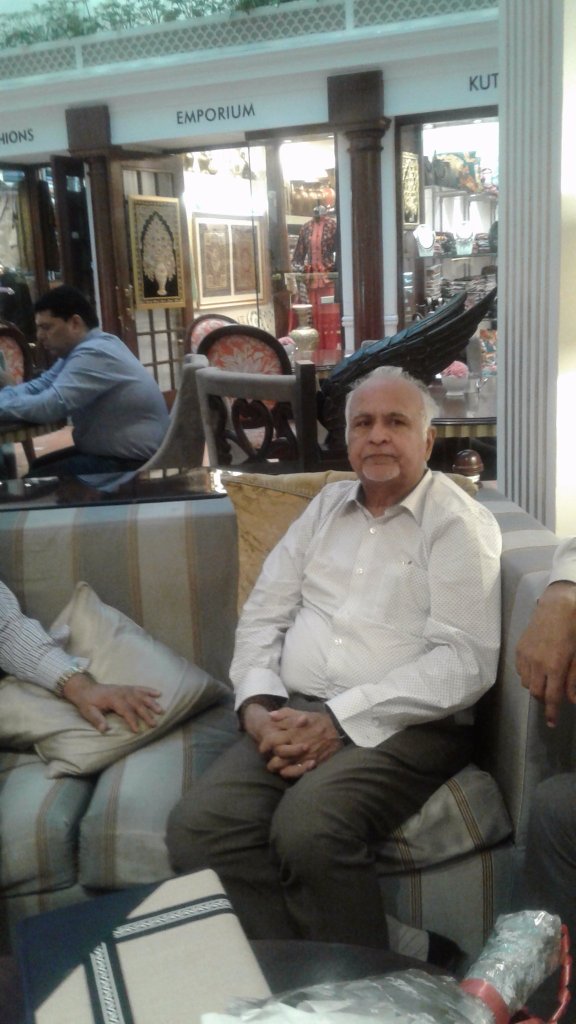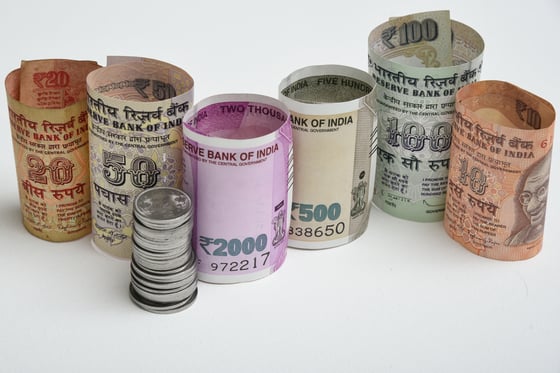Competitiveness, climate, security Finn’s priorities
Ministry of Finance release Finnish road map of EU presidency.
Finland is set to present its Presidency work programme to EU finance ministers in Brussels on Tuesday 9 July. The Economic and Financial Affairs Council (Ecofin) will be chaired by Minister of Finance Mika Lintilä.
“Finland’s Presidency will strive to promote the Union’s competitiveness and social cohesion, seek ambitious progress in combating climate change and comprehensively protect the citizens of Europe against internal and external threats. Economic and financial affairs play a key role also in this work,” says Minister Lintilä.
Capital Markets Union needs more work
As regards financial markets, Finland aims to take up the work to reinforce the Banking Union and develop the Capital Markets Union. The aim is to make the European banking sector more robust and resilient and to boost cross-border investment.
Finland aims to
- launch discussions towards a new roadmap for the next phase of the Capital Markets Union
- make progress on outstanding legislative files, including the sustainable finance package
- reach agreement with the European Parliament and the European Commission on the proposed legislation on crowdfunding
- contribute to preventing money laundering and terrorist financing, and to countering cyber and hybrid threats in finance.
White House has not confirmed PM Imran’s visit

United States Department of State on Wednesday said the White House has not confirmed reports of a meeting between Prime Minister Imran Khan and President Donald Trump.
During a press briefing, US State Department Spokesperson Morgan Ortagus said she would reach to the White House to confirm or not confirm the visit.
“To my knowledge, that has actually not been confirmed by the White House. I know that I have read the same reports that you have, but I would reach out to the White House to confirm or not confirm that visit, but that’s — we don’t have anything to announce here from the State Department,” Ortagus said.
Last week, reports of a meeting between PM Imran and the US president in July had surfaced.
According to sources, PM Imran Imran was likely to meet Trump during a five-day visit to the US in July.
Sources said PM Imran would be accompanied by Foreign Minister Shah Mehmood Qureshi and other leaders during his visit to the US on July 20.
The prime minister was expected to meet President Trump and other officials during his visit. The two leaders were expected to discuss bilateral relations between the two countries, regional issues and the Afghan peace process.
In September, the prime minister will travel to New York to represent Pakistan at the 74th session of the United Nations General Assembly (UNGA).
PM Imran will address the 74th UNGA session for the first time since he assumed office in August 2018. GEO NEWS
Media Invites abridged

Dear Mr Naresh Kumar Sagar,
I am writing to inform you that the Cement Manufacturers Association (CMA) is organising its Fourth CMA Conference on Alternative Fuels and Raw Materials in Cement Industry on September 30-October 1, 2019, at Hotel Hyatt Regency in New Delhi.
LG Electronics cordially invites you to the launch of the most awaited smart television from the house of LG on 10th July 2019 (Wednesday) at The Oberoi, New Delhi. The senior officials from Google, Dolby and Amazon will be present at the event to speak about the wonders AI brings to us.
Please find the invite below and attached.
Date – 10th July 2019 (Wednesday)
Time – 10: 30 AM onwards
Venue – The Oberoi Hotel, Delhi Golf Club, Golf Links, New Delhi
BROOKINGS INDIA
Panel Discussion| Waiting for an Equal World: Gender in the Northeast
Friday, July 19th, 4:00 pm – 5:30 pm
Brookings India, No. 6, Second Floor, Dr. Jose P. Rizal Marg, Chanakyapuri, New Delhi
Brookings India, No. 6, Second Floor, Dr. Jose P. Rizal Marg, Chanakyapuri, New Delhi
CPR Invite
| Jul10Centre for Policy Research & Trivedi Centre for Political Data (Ashoka University) invite you to a discussion on the book‘Clients & Constituents’ by Jennifer BussellDiscussants: Jennifer Bussell, Associate Professor of Political Science and Public Policy at the University of California, Berkeley Gilles Verniers, Assistant Professor of Political Science, Co-Director of TCPD, Ashoka University Moderator: Rahul Verma, Fellow, Centre for Policy ResearchWednesday, 10 July 2019, 2:30 to 4:00 p.m. Conference Hall, Centre for Policy Research |
MEDIA INVITE
COLOURING THE WOUNDS AWAY
Title: Colouring the Wounds Away- Art Exhibition
Opening
Time and Date : 6pm July 11, 2019
Timings on all other days : 11am-7pm , July 12-14, 2019
Entry : Free Entry
Venue : Academy of Fine Arts and Literature
4/6, Siri Fort Institutional Area
Opp. Siri Fort Auditorium
Gate No. 2 , New Delhi -110049
Speakers at the inaugural : Dr Amit Sen, Psychiatrist, Director, Children First , Ankita Khanna , Psychologist and Arts Based Therapist, Head of Services, Children First, Gurgaon
About the Artist : Dealing with an internal turmoil that was occupying her young mind and heart that Seher started painting. For a long time it was just a diversion which helped her overcome deep depression but over the last year with determination to fight depression, assisted by psychiatrists, counselors and her family painting has become a serious engagement for Seher. Seher does not have any formal training in art. Seher loves to play with color and makes mainly abstract figures and trees. Painting has a soothing effect on her nerves and has helped her heal and overcome a difficult phase.
Seher is a fashion stylist by profession. She did a diploma course from NIFT, Delhi. Seher also writes poetry.
Timings on all other days : 11am-7pm , July 12-14, 2019
Entry : Free Entry
Venue : Academy of Fine Arts and Literature
4/6, Siri Fort Institutional Area
Opp. Siri Fort Auditorium
Gate No. 2 , New Delhi -110049
Speakers at the inaugural : Dr Amit Sen, Psychiatrist, Director, Children First , Ankita Khanna , Psychologist and Arts Based Therapist, Head of Services, Children First, Gurgaon
About the Artist : Dealing with an internal turmoil that was occupying her young mind and heart that Seher started painting. For a long time it was just a diversion which helped her overcome deep depression but over the last year with determination to fight depression, assisted by psychiatrists, counselors and her family painting has become a serious engagement for Seher. Seher does not have any formal training in art. Seher loves to play with color and makes mainly abstract figures and trees. Painting has a soothing effect on her nerves and has helped her heal and overcome a difficult phase.
Seher is a fashion stylist by profession. She did a diploma course from NIFT, Delhi. Seher also writes poetry.
Analysis of Donations from Corporate & Business Houses to National Parties - FY 2016-17 & 2017-18(Known donations above Rs 20,000 only)
For complete report in English and the summary in Hindi, containing sector-wise in-depth analysis of donations received by National Parties between FY 2016-17 & 2017-18, kindly refer to the attached reports.
Introduction
Political parties are required to submit details of donors who have made donations above Rs 20,000 in a financial year (between 1st April and 31st March) to the Election Commission of India, every year. Parties provide details of the name, address, PAN, mode of payment and amount contributed by each donor who has made donation above Rs 20,000 in their submission.
- Association for Democratic Reforms (ADR), in its report dated 8th January, 2014, specified that various sectors of business houses in 8 years, between FY 2004-05 & 2011-12, donated a total of Rs 378.89 cr to National Parties, constituting 87% of the total contribution from known sources of political parties.
- In its previous report dated 18th August, 2017, ADR specified that various sectors of business houses in 4 years, between FY 2012-13 & 2015-16, donated a total of Rs 956.77 cr to National Parties, constituting 89% of the total contribution from known sources of political parties.
- This report analyses the donations from corporates to National Parties between FY 2016-17 and 2017-18.
- Political parties considered for the report are BJP, INC, NCP, CPI, CPM and AITC. Though a National party, BSP has not been considered for analysis in this report as the party has declared that it received no voluntary contributions above Rs 20,000 from any donor during this period as well as during the time period since 2004.
- It is seen from the analysis that during the period 2016-18 various sectors of business houses donated a total of Rs 985.18 cr, constituting 93% of the total contribution to political parties from known sources. Donations from corporates to National Parties increased by 160% between FY 2004-05 to 2011-12 and FY 2016-17 to 2017-18.
Chart: Comparison of corporate donations to National Parties between FY 2004-05 and FY 2017-18
Executive Summary
1. Donations from Corporate/business houses
- In FY 2016-17 and 2017-18, the 6 National Parties received a total of Rs 1059.25 cr via voluntary contributions above Rs 20,000 out of which 93% or Rs 985.18 cr was from corporates/ business houses alone.
- Out of 6 National Parties, BJP received the maximum donations of Rs 915.596 cr from 1731 corporate donors followed by INC which received a total contribution of Rs 55.36 cr from 151 corporate donors, and NCP with Rs 7.737 cr from 23 corporate donors.
- During FY 2016-17 and 2017-18, BJP’s and INC’s voluntary contributions above Rs 20,000 from corporate/business houses is 94% and 81% respectively.
- CPI has the lowest share of corporate donations at 2%.
Chart: Percentage of Corporate Donations Received by National Parties, FY 2016-17 & 2017-18
2.Year-wise corporate donations to National Parties
- It is observed from this analysis that various sectors of business houses, in 6 years between FY 2012-13 & 2017-18, donated a total of Rs 1941.95 cr or 91.17% of the total contribution from known sources of political parties amounting to Rs 2129.92 cr.
- National parties have received the maximum corporate donations of Rs 573.18 cr in the FY 2014-15 (during which the Lok Sabha elections were held), followed by FY 2016-17 with Rs 563.19 cr and FY 2017-18 with Rs 421.99 cr.
- Between FY 2012-13 and 2017-18, donations from corporates to National Parties increased by 414%, with a major drop in the percentage of corporate donations in FY 2015-16.
- Donations from corporates to National Parties reduced by 25.07% between FY 2016-17 and 2017-18.
- Between FY 2012-13 and 2017-18, BJP received the maximum corporate donations of Rs 1621.40 cr, constituting 83.49% of the total corporate donations in the six years.
Chart: Corporate donations received by National parties between FY 2012-13 and 2017-18
3. Top corporate donors to National Parties
- Prudent/Satya Electoral Trust was the top donor to two of the National Parties, between FY 2016-17 and 2017-18. The Trust donated a total of 46 number of times in 2 years, amounting to Rs 429.42 cr.
- BJP declared receiving Rs 405.52 cr in 33 donations while INC was the recipient of Rs 23.90 cr of funds in 13 donations from Prudent/Satya Electoral Trust.
- Bhadram Janhit Shalika Trust was the second highest corporate donor to BJP and INC, donating 10 times, a total amount of Rs 41 cr.
- Details of top donors to the 6 National Parties between FY 2016-17 & 2017-18 is given in Annexure – 1.
Chart: Top 3 corporate donors to National Parties, FY 2016-17 and 2017-18
Chart: Top 10 corporate donors to National Parties, FY 2016-17 & 2017-18
4. Categorization of donors based on their type of businesses
- The contributions from corporate/ business houses have been divided into 15 sectors/categories by ADR and does not form a part of the submission made by parties to ECI. The sectors include Trusts & Group of companies; Manufacturing; Power & Oil; Mining, Construction, Exports/Imports; and Real Estate among others.
- A total of Rs 985.18 cr was donated by all the corporate/ business houses to the 6 National Parties between FY 2016-17 and 2017-18.
- Of this, Rs 22.59 cr was also received from the unsegregated category, which includes companies with no details available online or those with no clarity regarding the nature of their work.
Chart: Percentage share of donations from various business sectors to National Parties, FY 2016-17 & 2017-18
5. Sectors with top donations to National Parties
- Between FY 2016-17 and 2017-18, Electoral Trusts were the biggest donors to the National Parties, contributing a total amount of Rs 488.42 cr.
- Real Estate sector was the second highest overall contributor in FY 2016-17, contributing a total amount of Rs 49.94 cr. While in the FY 2017-18, Manufacturing sector was the second highest overall contributor with Rs 74.744 cr.
- Between FY 2016-17 and 2017-18, BJP and INC received the maximum contributions from Electoral Trusts. BJP received the highest, Rs 458.02 cr, followed by INC with Rs 29.40 cr.
- BJP received the highest donations from all 15 sectors including Manufacturing (Rs 107.54 cr), Real Estate (Rs 88.575 cr), Mining, construction, exports/imports (Rs 57.40 cr) etc.
Chart: Top 5 sectors with donations to National Parties, FY 2016-17 & 2017-18
Chart: Donations from top 3 sectors to BJP, INC and NCP, FY 2016-17 & 2017-18
6. Donations without PAN details and address
- A total of 916 donations through which National Parties received Rs 120.14 cr do not have address details in the contribution form.
- National parties have received Rs 2.59 cr from 76 donations which do not have PAN details in the contribution form.
- 98% of such donations without PAN and address details worth Rs 2.50 cr belong to the BJP.
Chart: Corporate donations to National Parties without PAN and Address details, FY 2016-17 & 2017-18
7. Unsegregated Donations
- 6 National Parties reported receiving 347 donations amounting to Rs 22.59 cr from corporate entities which have zero internet presence or if they do there is ambiguity about the nature of their work.
- Contact and address details of most of these companies were unavailable in cases where they were visible online.
- Such contributions have not been segregated into different sectors due to incomplete information.
Recommendations
- The Supreme Court gave a judgment on 13-09-2013, declaring that no part of a candidate affidavit should be left blank. Similarly, no part of the Form 24A submitted by political parties providing details of donations above Rs 20,000, should be blank.
- All donors who have donated a minimum of Rs 20,000 as a single or multiple donations should provide their PAN details.
- Date on which the donation was made should be recorded by the party and submitted in Form 24A.
- Any party which does not submit its donation statement to the ECI on or before 31st Oct should be heavily penalized and its income should not be tax-exempted.
- A total of Rs 2.55 cr was collected by the National Parties from 84 corporate donors without obtaining their PAN and Address details. Such incomplete contributions reports must be returned to the parties by the ECI, to deter them from providing incomplete information.
- Corporates should make details of their political contributions available in public domain through their websites (in annual reports or in a dedicated page) for increasing transparency in political financing.
- Annual scrutiny of donations reports of National, Regional and unrecognized parties should be initiated by a dedicated department of the CBDT, to discourage donations from shell companies or illegal entities.
Contact Details
Media and Journalist Helpline
+91 80103 94248
Email: adr@adrindia.org
|
Maj Gen Anil Verma (Retd)
Head – ADR & NEW
+91 8826479910
|
Prof Jagdeep Chhokar
IIM Ahmedabad (Retd)
Founder Member– ADR & NEW
+919999620944
|
Prof Trilochan Sastry
IIM Bangalore
Founder Member– ADR & NEW
+919448353285,
|
Association for Democratic Reforms
T-95, C.L. House, 2nd Floor,
(Near Gulmohar Commercial Complex)
Gautam Nagar
New Delhi-110 049
(Near Gulmohar Commercial Complex)
Gautam Nagar
New Delhi-110 049
M: +91 8010394248
T: +91 11 41654200
F: 011 4609 4248
Friday, June 28, 2019
NASA : Search for Alien Life on Saturn’s Moon
On Thursday NASA announced a mission to land a car-sized robot quadcopter on Saturn’s moon Titan in 2026. After it reaches Titan in 2034, the craft, called Dragonfly, will fly around Titan for two-and-a-half years to try and understand the processes that formed the 5150 km-wide moon.
Titan is considered significant because its atmosphere hosts complex organic molecules. The moon’s surface has mountains of ice and liquids seas of hydrocarbons (mainly methane and ethane), making it the only solar system object to sustain stable liquid bodies on its surface. Scientists also think there could be an ocean of liquid water under Titan’s icy surface. All these features mean that Titan could potentially harbour or sustain life.
Europe’s Huygens probe was the first to touch down on Titan, in January 2005.



No comments:
Post a Comment